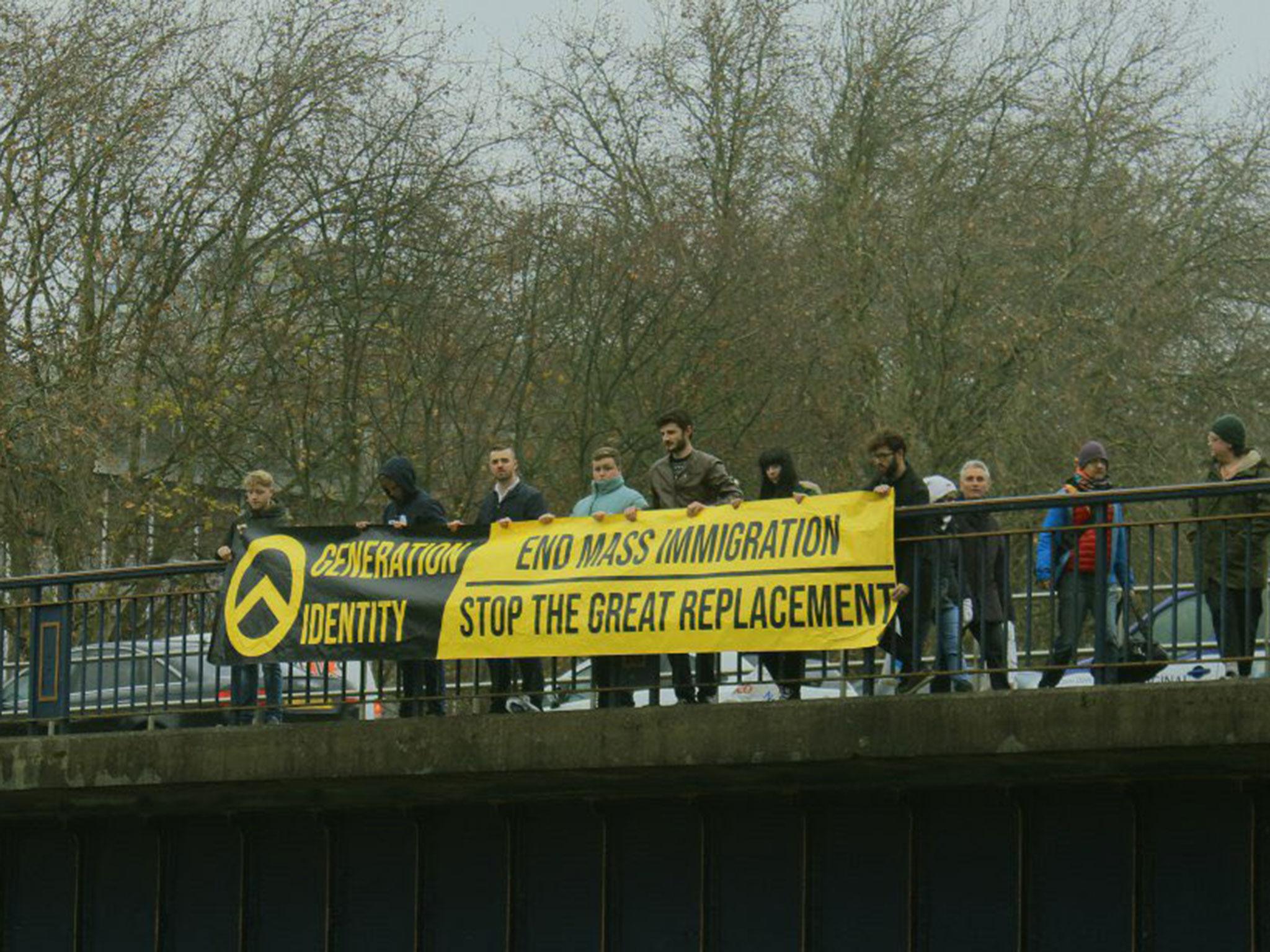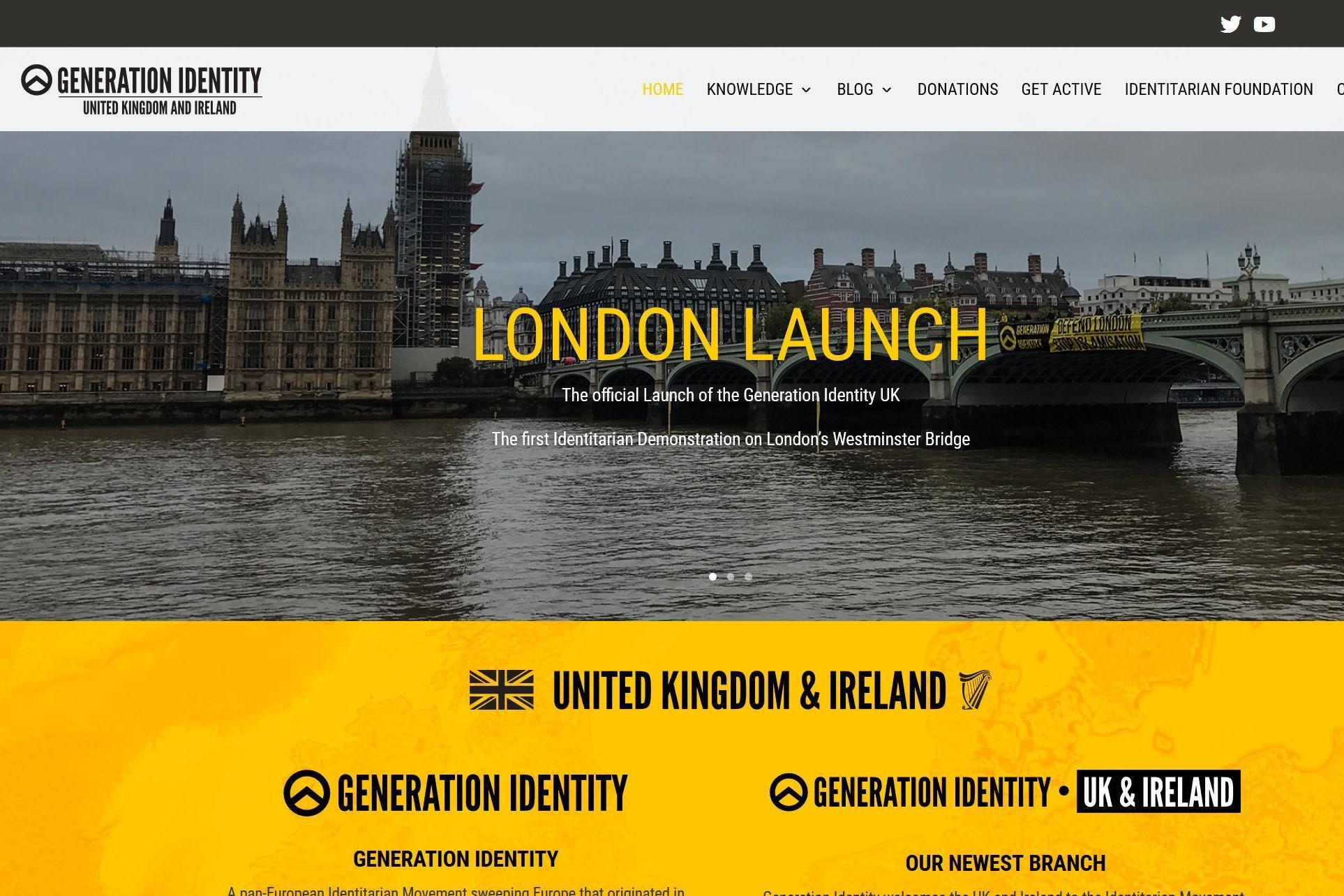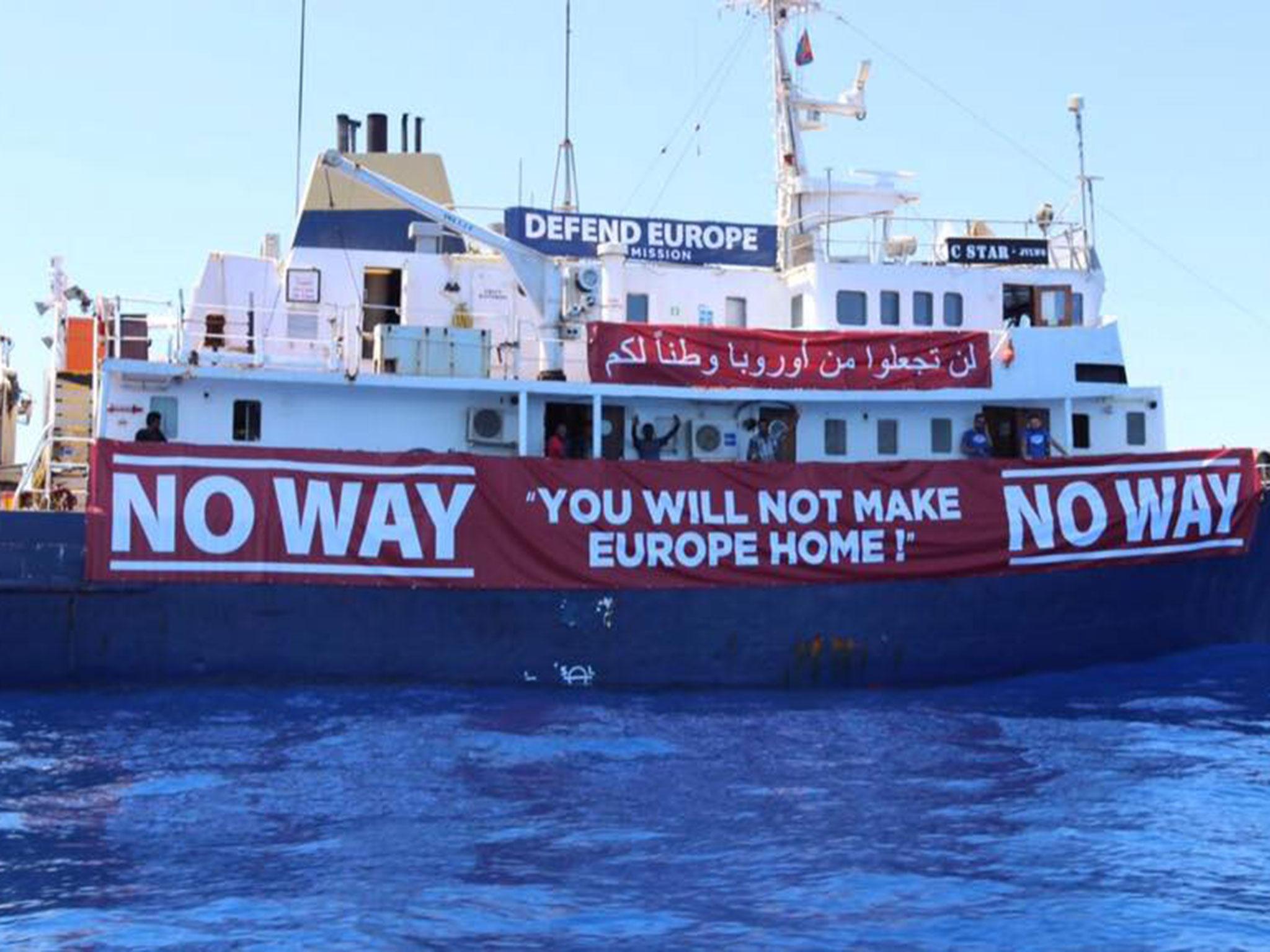Terror police have ‘no plan’ to tackle white nationalist group that inspired Christchurch attack
Generation Identity’s UK branch continues to spread ‘great replacement’ theory behind massacres in New Zealand and US

Counterterror police have admitted they have “no plan” to tackle a white nationalist group spreading the ideology that inspired attacks including Christchurch and El Paso.
Generation Identity continues to operate openly in the UK six months after one of its supporters massacred 51 Muslims in New Zealand.
When asked by The Independent how the organisation was being combatted, the head of UK counter-terror policing replied: “I don’t have [a plan] as a counterterrorism officer.”
Assistant Commissioner Neil Basu added: “I don’t have one for a very good reason – because until they cross a criminal threshold it’s not my business.”
He called for wider intolerance in British society to be tackled but added: “It isn’t for policing and the security services to get involved in this conversation. It’s about other public services.”
One man who spent time undercover in Generation Identity UK called the comments “very troubling” and warned that the group would inspire further terror attacks.
Generation Identity calls for a “remigration” of Muslims from Europe and spreads a conspiracy theory claiming that white people are being “replaced”.
The theory’s name – the great replacement – was the title of a manifesto posted by Brenton Tarrant before the Christchurch shooting, which inspired terror attacks in Surrey, El Paso, Poway and Norway.
Tarrant donated money to the Austrian branch of Generation Identity and exchanged friendly emails with its leader Martin Sellner, who is under investigation by police in Vienna and has been banned from entering Britain on security grounds.
At a briefing this week, police said far-right terrorism was the fastest-growing threat in the UK and named Generation Identity among groups able to inspire attacks.
“Anywhere along this spectrum, people who are vulnerable to it can adopt part of that ideology to move into a terrorist act,” Mr Basu warned.
But Generation Identity’s British arm is continuing to stage protests and events, even hosting its own conference in London two months ago.
Its slick website and numerous Twitter accounts remain online, calling for new recruits to “defend European culture” and spewing out propaganda.
An investigative journalist who was undercover in the group for five months earlier this year told The Independent members were aware of the “legal line” between their activities and laws on hate speech, terrorism and inciting racial hatred.

“They are extremely careful on the subject of violence,” Ben van der Merwe said. “They said at one point they assumed the government was watching them, but it was ok because they tread the line very carefully. They’re terrified of proscription.”
The same tactic was successfully adopted for years by Anjem Choudary’s al-Muhajiroun Islamist network, until it was banned as a terrorist organisation after numerous members carried out or attempted attacks.
Generation Identity’s leaders – like Choudary in the 2000s – deny calling for violence and say they vet members to root out extremists and neo-Nazis.
Activists are encouraged to be “well-groomed” and are coached in the language of “ethno-cultural identity”, with leaflets handed out at protests listing chants talking of immigration and “Islamisation”, rather than Muslims and race.
A researcher who went undercover in Generation Identity as its British branch was being set up in late 2017 recalled training on how to rebuff racism accusations from journalists.
Julia Ebner, a senior research fellow at the Institute for Strategic Dialogue, said leaders give “very clear instructions on how to ensure they’re never operating beyond the law”.
“They are trying to exclude members who demonstrate a willingness to use violence but they are also pandering to that audience,” she told The Independent.
“In the German-speaking world they are a priority for the security services.”
Mr Van der Merwe said Generation Identity’s goal is to “shift public opinion towards ethnic cleansing”, sparking the election of far-right governments with extreme immigration policies across Europe.
But leaders privately recognise that the “great replacement” ideology inspired massacres in Christchurch and elsewhere, he said.

Recalling the aftermath of the El Paso shooting, which left 22 victims dead in August, Mr Van der Merwe said: “The overwhelming response was concern about proscription and brand damage … they agreed with the aims but not the methods, which they thought would get them banned or marginalised.
“The fact is that they have inspired attacks and probably will continue to do so.”
Social media companies have repeatedly vowed to crack down on extremists, but The Independent found more than a dozen Twitter accounts being operated by Generation Identity branches and leaders in the UK, France, Germany and Austria.
Twitter said it bans users from “promoting violence against, directly attacking or threatening people on the basis of protected categories such as race, ethnicity and national origin”.
Generation Identity UK, which has renamed itself the Identitarian Movement following a split with European leaders, claimed it was “preposterous” to suggest its ideology causes violence.
Leader Ben Jones said the group regards the Christchurch attack “as a tragedy”, adding: “We are aware of increasingly authoritarian tendencies in this country, we therefore accept that it’s imperative to our ethics and strategy to operate within the law.”
Generation Identity’s European leadership said it no longer has official ties to the UK branch.
The Home Office said an upcoming report by the independent Commission for Countering Extremism would help combat the threat from extreme right-wing groups.
A spokesperson added: “The government is serious about tackling all forms of extremism and are committed to tackling the damaging ideology of groups like Generation Identity, including stopping individuals entering the UK from overseas when their purpose is to spread hatred and division.”
Join our commenting forum
Join thought-provoking conversations, follow other Independent readers and see their replies
Comments